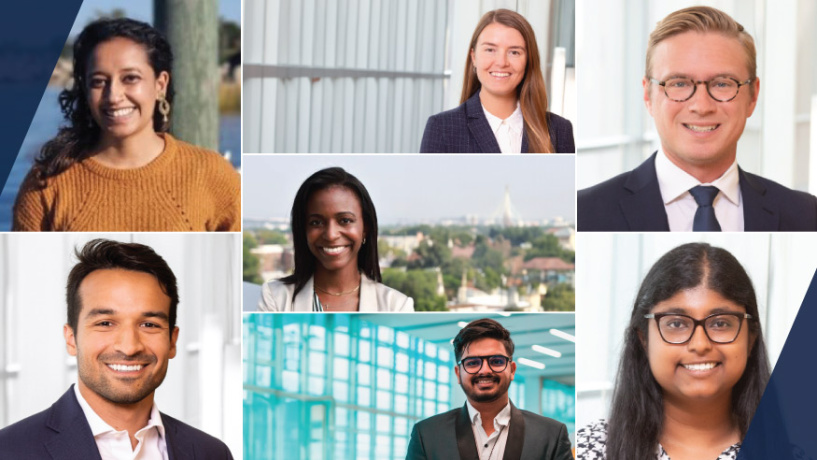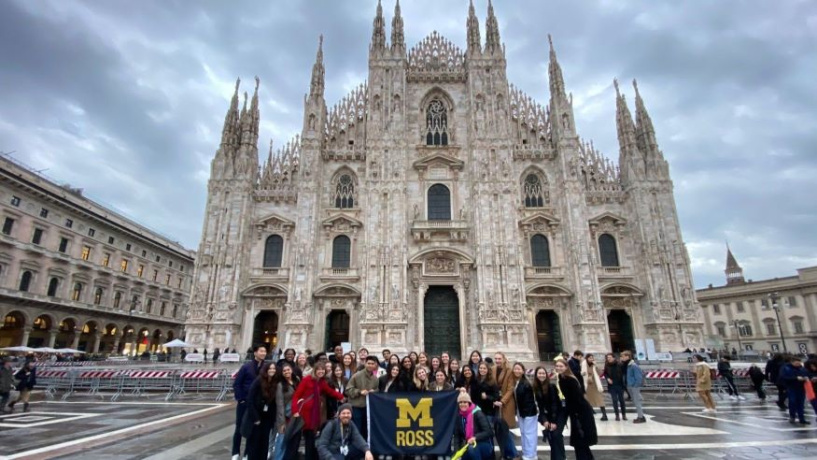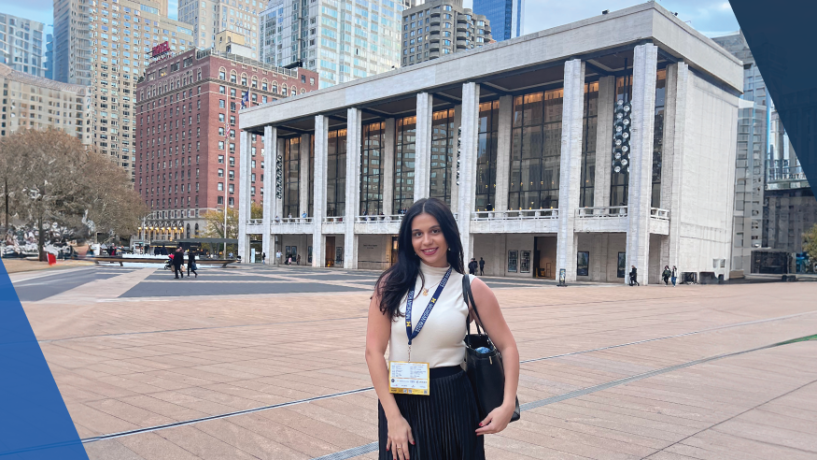We Face Incredible Global Challenges — But I’m Committed To Helping My Fellow Students Rise To The Occasion

By Grant Faber, BBA ‘19 / MS ‘21
A report from the Future of Humanity Institute at the University of Oxford puts the risk of human extinction by 2100 at about 19 percent.
More than 70 billion farm animals are killed for food each year, along with trillions of sea animals. And about 67 percent of humanity lives on less than $10 per day. These depressing statistics represent some of the worst problems that conscious beings on Earth face: existential risk, factory farming, and global poverty respectively.
Effective altruism (EA) is a philosophy and international social movement that uses evidence and rigorous research to determine the most effective ways to identify and solve these kinds of problems. And, I’m happy to say, it recently found its way into Michigan Ross.
As a student ambassador with Ross’ Business+Impact (B+I) initiative, I organized the recent Workshop on Defining, Measuring, and Encouraging Impact with the help of B+I and the student group Effective Altruism at Michigan. The purpose of the workshop was to provide U-M community members the opportunity to participate in a dialogue on and learn about the various ways in which they can use their resources and careers to do the most good possible.
The workshop began with Professor Jerry Davis providing an overview of Business+Impact at Ross. He discussed how the initiative was formed to make Ross into the “most progressive source of ideas and solutions to address global challenges of our generation.”
Then, Trevor McCarty, BA ‘18 and Nicholas Hollman, BA ‘20 of the effective altruism student group gave a lecture on how they came to be effective altruists, what EA classifies as the most important problems we face, and how we can all contribute to effectively mitigating these problems. The event also included a lecture from Professor David Manley, from the U-M philosophy department, that helped attendees identify the cognitive biases that drastically skew our ability to determine which problems are the most worthy of our attention.
There were various activities throughout the workshop as well, where participants had opportunities to formulate and share thoughts on how they define impact, what they believe to be the most pressing problems in the world, and how we can encourage others to work on these issues.
Despite being one of the organizers, I personally gained quite a bit of interesting knowledge. My most notable key takeaways included the following:
- Doing the most good possible is not intuitive and requires rigorous research with randomized control trials, serious consideration of counterfactuals, and intelligently designed metrics. However, once these factors are taken into account, working to do the most good – even with limited resources – can lead to massive impacts on society.
- One in eight of total global deaths is attributable to air pollution, much of which is attributable to the burning of fossil fuels. This equates to about 7 million people per year. However, the Fukushima disaster, which received an excessive amount of media coverage, caused 0 direct deaths and is only projected to cause 400 deaths due to long-term radiation and 1,600 due to evacuation stress. This asymmetry between actual deaths and media, and thus societal, attention demonstrates our general and severe inability to properly align concern with risk, reinforcing the need for rigorous cause prioritization research and promotion.
- Helping people now and helping future generations are not mutually exclusive; creating good lives for people today has reverberating effects throughout time and space.
- Effective altruism, which is often seen as a utilitarian philosophy, is not mutually exclusive with rights-based ethical systems, as the gravest violations of human rights are a major source of risk and provide opportunities for substantial impact.
One of Business+Impact’s goals is to train students to be the positive architects of humanity’s future, and effective altruism as a philosophy and movement provides a great deal of information to guide people, particularly career-minded individuals, on how to do this as effectively as possible.
B+I and the EA student group at Michigan will continue working on creating altruistic students who are motivated to tackle some of our thorniest and most pressing problems. I am proud to be one these students and hope that my colleagues will also see the importance of using their careers to work on the problems that pose the greatest challenges imaginable to our species and to sentient beings in general.
You can access the workshop slides and notes at this link.







